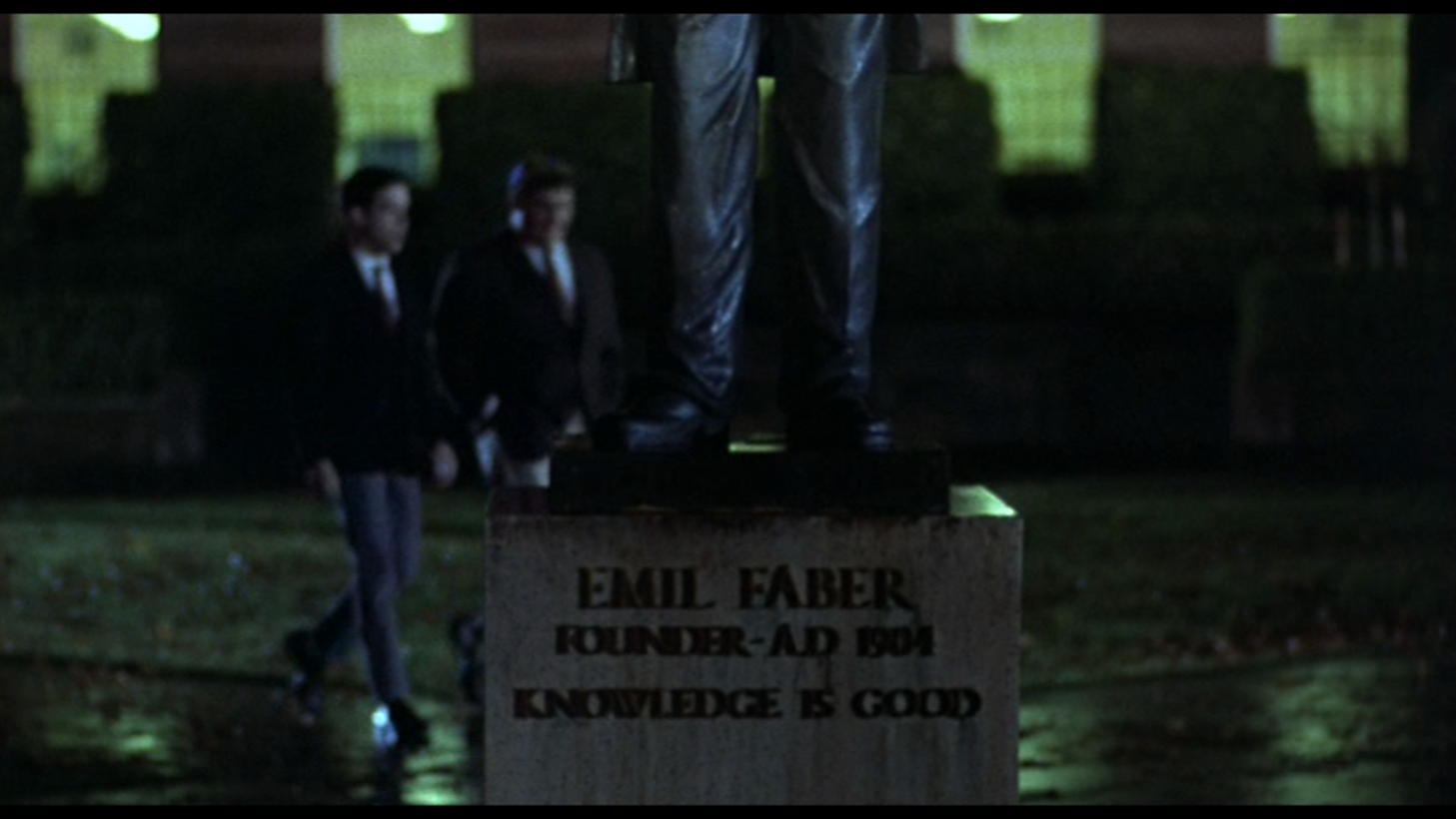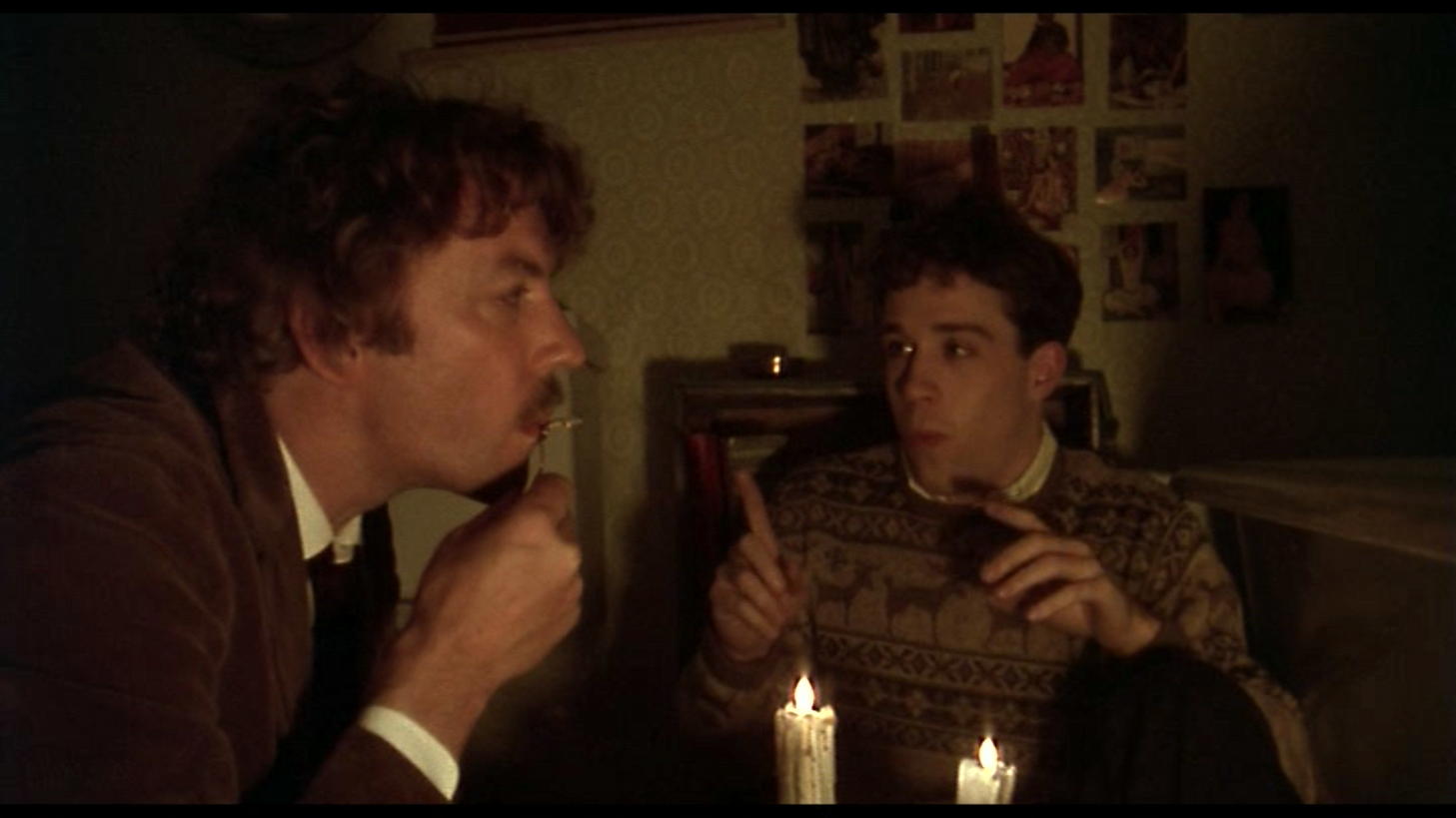The ongoing rise of school choice

Government school motto now ‘knowledge is secondary’. Secondary to administrations, secondary to unions, secondary to politicians.
I was reading about Oregon’s plan to reform how colleges and universities are paid, and it occurred to me, we’re getting school vouchers whether we want them or not. We’re just applying them to colleges, pretending to make students pay for them, and wasting everyone’s time in the process. I’ve occasionally said that I think people should be forced to live a little for a few years before going into college; I would not be surprised if someday that period is the four years that currently take up high school. If government schools continue to teach less and less there will come a time when people just don’t see the need for it.
If the job interviews I take part in are any indication, colleges are already teaching computer programming that could just as easily be taught in high school or with a minimum of self-instruction. I expect it’s the same for other fields.
College instruction is no longer even about a passion for learning. We interview computer programming majors who don’t have programming projects, graphics design majors who don’t do their own art, and English majors who don’t read books. It’s as if, in fact, they are taking these courses because they have to—just like high school.
Government schools no longer prepare us for jobs. Colleges are having to teach at a high school level to attract customers—because their customers don’t have a high-school level education yet.
You might think that the big problem with this trend is that it means people are less and less prepared to go into college, and while that’s a true statement, the big problem is that, the more money the government puts into colleges, the more colleges evolve into government programs—and so they start failing us, too.
The college system still works on choice: even government colleges need to attract students; they don’t get handed students automatically. Because of this, government colleges must compete with private colleges, despite government handouts that ought to shoot them ahead. The same would work for government high schools if we let it. I’m currently reading John Stossel’s• Myths, Lies, and Downright Stupidity• and ran across this:
…in 1990, the city of Milwaukee did create a voucher program for some kids. When the program started, the Milwaukee school superintendent, Robert Peterkin, scoffed, “The idea that competition is just going to spark improvement for all schools is something that has no basis in fact.”
Peterkin was wrong. In 2001, Harvard economist Caroline Hoxby did research to see what vouchers had done to nearby public schools. Hoxby found that kids who used vouchers to go to private schools raised their scores, and the kids in the competing nearby public school did too. The private school vouchers made the public schools change.… Test results at those public schools went up by 8.1 percent in math, 13.8 percent in science, and 8.0 percent in language.

“Wait, in America parents have only one choice of schools, and neither teachers nor administrators are held accountable for the quality of education?”
A voucher system doesn’t have to leave public schools with less money per student either. Since private schools can do better with less money, the voucher can be less than what the government spends per child; in Milwaukee, the difference was $3,878. Every child that went to a voucher school left more money for their cohorts in the public schools. It was a win-win scenario. Everyone received a better education, and government schools received more money per child.
In every other field, we know why it works that way. Quoting Stossel again,
Government-run airlines had filthy planes that rarely arrived on time. The best car made by government-run car manufacturers couldn’t compete with the average cars made by private companies.
In America, the phone company was once a government-supported monopoly. All the phones were black, and all the calls were expensive. It was illegal to plug in an answering machine—installing a “foreign device,” the monopoly called it. Only when the monopoly was broken up did we get lower prices and the variety of phone choices we have now.
So why do we entrust American education to a government monopoly?
In some European countries, government schools do need to compete. And, as expected, it makes them better:
Karl Vandensavel runs a Belgian government school, but she has to compete. She told us she works hard to impress the parents. “If we don’t offer them what they want for their child, they won’t come to our school.”
“That’s normal in Western Europe,” Harvard economist Caroline Hoxby told me. “If schools don’t perform well, a parent would never be trapped in that school in the same way you could be trapped in the U.S.” Vandensavel adds, “America seems like a medieval country… a Communist country on the educational level, because there’s no freedom of choice—not for parents, not for pupils.”
We gave the Post Office competition, and where they must compete they now do better.
Competition has given us better TVs, homes, cars, food, phones, and well, everything. The U.S. Postal Service couldn’t get it there overnight. None of the brilliant managers of that government monopoly would make it happen. But once others were allowed to compete, Federal Express, United Parcel Service, Airborne Express, etc., suddenly were able to get it there overnight. Now even the post office does it. Competition inspires people to do what we didn’t think we could do.
That last part is the most important: We don’t even know what we’re missing by sticking to a government monopoly in K-12 education. Not only can we have whatever we want, because someone will want to make money giving it to us, but we’ll get results even better than what we want. Things we haven’t even dreamed of yet, because government monopolies suppress our dreams just as they suppress innovation.
Instead, we’ve turned colleges into high schools and waste everyone’s time. Colleges, in order to compete for students who don’t really have high school educations, have had to reduce themselves to providing a high school education. The government monopoly has turned colleges into a private market in high schools—but unlike a voucher system where everyone gets a high school education, the government monopoly in “high school” means that only people who go to college get an actual high school education.
In response to Can schools compete with the Internet by clicking?: Fat, drunk, and clicking is no way to go through life.
- Myths, Lies, and Downright Stupidity•: John Stossel (paperback)
- “Prepare to be surprised, corrected, and outraged as you learn how conventional wisdom is often wrong.”
- No Such Thing as ‘Free Tuition’: Kevin Kiley
- “Despite the headlines, the state didn’t suddenly abandon all plans to charge tuition. Last week the Oregon legislature took the first steps toward possibly implementing a plan that would allow public college and university students to forgo upfront tuition payments in exchange for paying a portion of their wages back to their alma mater for about 25 years following graduation. While it may mean no money down, it could still add up to large tuition bills.” (Hat tip to Glenn Reynolds at Instapundit)
- SPLC: If You Can’t Help Every Child, You Can’t Help Any Child: Jason Bedrick at The Cato Institute
- “Most people know the story of the boy who was rescuing sea stars that had washed up on a beach by throwing them back into the ocean. When a man scoffed to the boy that his efforts didn’t make a difference since he couldn’t save all of them, the boy tossed another sea star back into the ocean and replied, ‘It made a difference to that one.’ The little-known ending to the story is that the boy was sued by the Southern Poverty Law Center.” (Hat tip to Ace at Ace of Spades HQ)
More government schools
- On education, the left is mired in the fifties
- Why don’t schools have locked doors? Because when it comes to education, especially K-12, the left, as in so many things, is mired in the distant industrialized assembly-line past.
- Why is it so difficult to hold schools accountable?
- Simulating accountability in education has the same problems as simulating accountability in health care or any other monopoly. Tests and grades and paperwork are never as effective as choice.
- Anything less than school choice is unfair
- Forcing people to pay for one government school regardless of where they want their kids to go is so unfair that even far-left Democrats think it’s wrong.
- Democrats endorse public school elections, teacher recalls?
- Should legislators and teachers be evaluated for job performance in the same way? A group called Winning Democrats suggests that public school teachers should be elected positions rather than tenured, and that teachers should be subject to recall by the communities they serve.
- What is a captive audience, anyway?
- G.K. Chesterton writes, in Eugenics and Other Evils, that whenever someone starts asking “what is x anyway?” you know they’re trying to pull some wool over your eyes and make it the default. So, really, what is a captive audience, anyway?
- Eight more pages with the topic government schools, and other related pages
